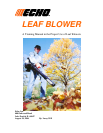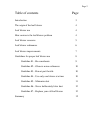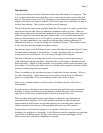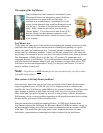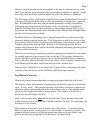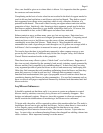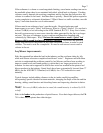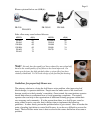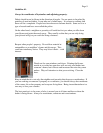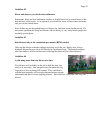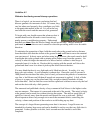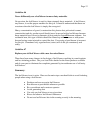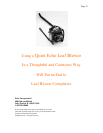
Page 5
However, factual information was not available at the time to conclude one way or the
other if leaf blowers are detrimental to the environment or hazardous to anyone’s health.
Since then, there have been reputable studies that prove leaf blowers to be benign.
The San Joaquin Valley Air Pollution Control District commissioned Dennis Fitz of the
University of California at Riverside to study the potential for leaf blowers to generate
dust. His published results show that the amount generated is actually insignificant.
Comparing data compiled in the San Joaquin Valley, daily driving of automobiles
generates 100 times more dust than leaf blowers. Interestingly enough, Mr. Fitz also
proved that even brooms generate more dust than blowers because they dislodge caked
dirt that a leaf blower leaves behind.
The Water and Power Department in Los Angeles spent millions on the design of an
alternative battery powered leaf blower. They thought this would be the answer to leaf
blower noise. It never made it to production. Performance was inadequate and couldn’t
compare with gasoline-powered units. But this is still disturbing because the next
attempt, should there be one, could be successful and better performing gasoline powered
blowers could be displaced.
There are several non-governmental organizations springing up around the country that
are strongly opposed to the existence of the leaf blower. Their greatest influence has
been in California, but because these groups use the Internet and influence columnists,
there is talk about banning blowers all over the country. Even in foreign countries such
as in Germany and Australia, leaf blowers have become a notable issue.
These activities should serve as a wakeup call. If ignored, bans could impact the future
existence of the leaf blower and the livelihood of the landscape contractor.
Leaf Blower Concerns:
What are the actual concerns that make so many people upset about the leaf blower?
The primary issue is the sound that is generated by leaf blowers, typically in residential
areas. It is the “noise”. Most people just think a leaf blower is loud and complain only
about that without understanding what the total problem really is. The whining sound
typical of older designs also tends to irritate people. The sound of a leaf blower is
historically uncomfortable to listen to.
There is also concern about when leaf blowers are used. There are many things one
would rather not have to listen to after 8:00 PM or before 7:00 AM. Not surprisingly, the
leaf blower is one of these.
Many operators do not know how to properly use a leaf blower. As with everything,
there is a right way and a wrong way to use a blower and it is not always obvious. For
example, because blowers at an idle are quieter than when run at high speeds, large
blowers should rarely be operated at full throttle in a residential area.



